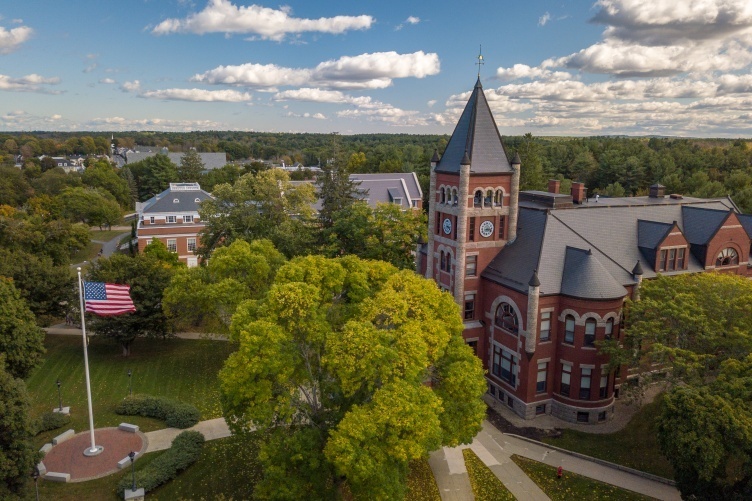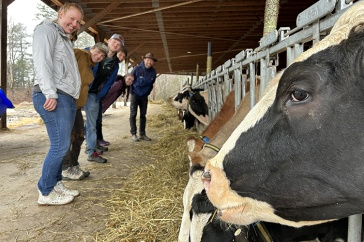
Once again UNH has shown its true colors — blue, white and green — after being named one of the most sustainable schools in the country by two of the top organzations that track a school's commitment to sustainability.
On Sept. 28, the Sierra Club ranked UNH at number nine on its list of the 20 Coolest Schools of 2020 . Earlier this month, the Princeton Review announced UNH was among the top 30 schools on its 2021 Green Honor Roll. Colleges and universities making the grade receive a score of 99, the highest possible score in the Review’s rating system.
The Sierra Club cited, among other practices, UNH’s move of about $56 million into environmental, social and governance-based (ESG) qualified investments, the university’s continued efforts to reduce its carbon footprint (59 percent reduction since 2001) and its work tackling its nitrogen footprint to protect water and air quality as well as to mitigate climate change. A newly-developed combined carbon and nitrogen footprint analysis tool, the Sustainability Management and Analysis Platform, has more than a thousand users from campuses across the globe.
UNH has previously been recognized for its sustainability efforts by the Chronicle of Higher Education Top College for Sustainability. In 2017, the UNH Durham campus became one of the few institutions of higher education to earn a STARS Platinum rating from the Association for the Advancement of Sustainability in Higher Education (AASHE).
“Sustainability is a true community effort. These new rankings reflect the immense passion, dedication over many years, and deep expertise of a broad set of faculty and staff across UNH, as well as our community partners, including UNH alumni who support the university’s sustainability efforts with guidance and philanthropic contributions,” Fiona Wilson, UNH deputy chief sustainability officer and director of the Sustainability Institute.
Home to one of the oldest endowed sustainability programs in the country, 85 percent of campus energy comes from recycled landfill gas. The main campus is powered by 100 percent renewable electricity. Its three dining halls and the UNH Dairy Bar — where some 25,000 pounds of food waste is composted every month — are 3 Star Certified Green Restaurants® by the Green Restaurant Association. All buses run on 100 alternative fuel, all residence halls have EPA Energy Star ratings and Wildcat Stadium and Wildcat Arena are zero-waste facilities.
What’s more, UNH offers a dual major in sustainability, was first in the country to offer ecogastronomy as a dual major and is second in the country for the study of ecology. UNH also the first college or university to establish an organic dairy research farm.
“We are committed to redoubling our collective work in response to the unprecedented sustainability risks and challenges facing current and future generations,” says Tom Kelly, executive director of the Sustainability Institute and UNH chief sustainability officer, adding that among those challenges are the climate crisis, loss of biodiversity, food system failures and systemic inequality. “We have a unique role to play in advancing sustainability across our educational programs, campus practices and culture, and collaborative engagement with community partners.”


















































